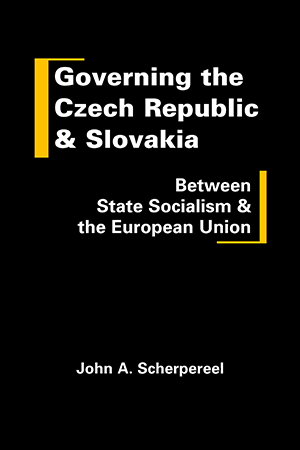John A. Scherpereel
Why do democratic leaders sometimes choose not to establish institutions that would promote the consolidation of democracy? And what are the consequences of those choices? Focusing on the cases of the Czech Republic and Slovakia, John Scherpereel explores the interplay of historical institutional legacies, short-term elite interests, and international pressures (i.e., EU conditionality) in the process of state reform.
John A. Scherpereel is assistant professor of political science at James Madison University.
"Shed[s] light on the role played by the communist past, conceptions of the nation, and the maneuverings of political actors in the Czech and Slovak Republics.... Makes an important contribution to the study of politics in contemporary East-Central Europe."—Tim Haughton, Perspectives on Politics
"Scherpereel has written a solid book that is of importance to country specialists as well as to scholars of comparative public administration and EU studies."—Marek Rybar, Slavic Review
"Outstanding.... A fascinating account of efforts to create (and to resist the creation of) those viable state institutions necessary for a functioning democracy. Scherpereel's empirically rich and theoretically informed study provides new insights into the stickiness of the communist political legacy and how the international context has been critical in conditioning democratic development in postcommunist Europe."—Mark R. Beissinger, Princeton University






